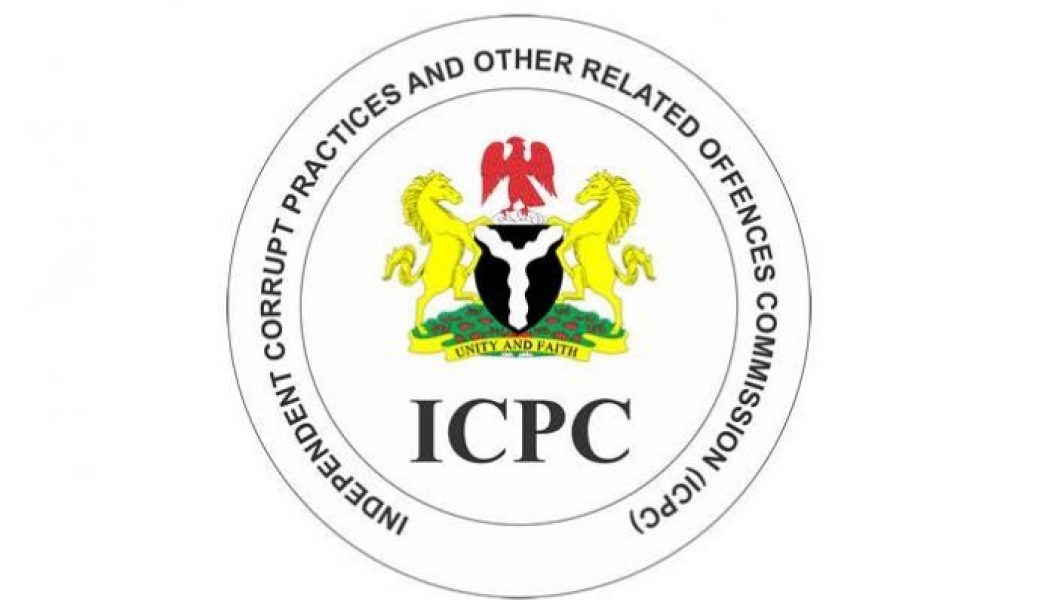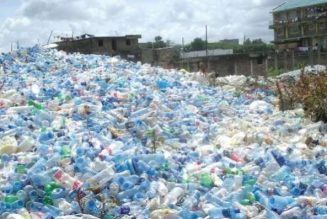
The Independent Corrupt Practices and Other Related Offences Commission (ICPC) says it is investigating alleged cases of corruption in the management of COVID-19 funds and palliatives.
The commission’s Director of Operations, Mr Akeem Lawal, disclosed this during a virtual meeting of stakeholders on the topic, “COVID-19 Funds Management and Monitoring”, on Thursday.
In a presentation titled, “ICPC Monitoring Obligation and Strategy Re: COVID-19 Emergency”, Lawal said the cases include alleged fraud by some participating public institution in the release and distribution of grains from strategic food reserve.
Others, according to him, include alleged infractions in the procurement of COVID-19 palliatives and logistics and community enlightenment activities.
The ICPC official, who did not mention names, said there were cases of state governments using the pandemic to “financially exploit local governments”.
He said there was also case of diversion of “COVID-19 logistics and contingency emergency fund into personal account.
“In all cases of infraction, culprits will be investigated and prosecuted,” the director said.
He added that the ICPC was monitoring distribution of money and food under the Conditional Cash Transfer Scheme and the Home School Feeding Programme.
Lawal stated that the commission’s intervention in the COVID-19 fund management was pursuant to its corruption prevention, enforcement and public sensitisation mandate.
He further said that the aim was to ensure transparency and accountability in the utilisation of the funds as directed by President Muhammadu Buhari.
Dr Dotun Adebayo, Special Adviser to the President on School Feeding Programme, said the government was targeting 3,131,971 households in the Home School Feeding Programme.
He stated this in a presentation on behalf of the National Home Grown School Feeding Programme (NHGSFP) titled, “NHGSFP Response Plan: Delivering a Transparent Food Ration Distribution”.
Adebayo said each household would get a food ration package worth N4,200 on the presumption of an average of three children per household.
According to him, a package contains five kilogrammes each of rice and beans; 500 milligrammes of vegetable oil, 750 milligrammes of palm oil, 500 gramme of salt, 15 eggs and 140 grammes of tomato paste.
“We normally expend N1,400 per child per 20 days when schools are open
“Fortunately, we had existing fund to cover 20-day circle in April for 35 states before schools were closed due to the COVId-19 lockdown,” he said.
The presidential aide said the government was leveraging the existing structure of the programme to deliver the food items to the beneficiaries.
Also, Chairman of ICPC, Prof. Bolaji Owasanoye in his welcome address said that the Commission in March, issued an advisory on response management for COVID-19 fund.
“We followed it up by setting a committee to monitor the use of contribution and funds during the emergency because such period could trigger higher level of corruption.
“We appointed observers at a request of the Presidential Task Force (PTF) on COVID-19 to focus on some key MDAs who will be involved in procurement and in response to COVID-19.
“We followed it up by issuing some prevention guidelines which were not mandatory but took from financial regulations and laws to guide MDAs on what we will be doing.
“The Account-General Office, followed by issuing very comprehensive frameworks for the management of COVID-19 fund under the treasury single account (TSA),” he said.
The chairman, however, gave assurance that the Commission would monitor all donations made by private sectors to ensure transparency and accountability.










